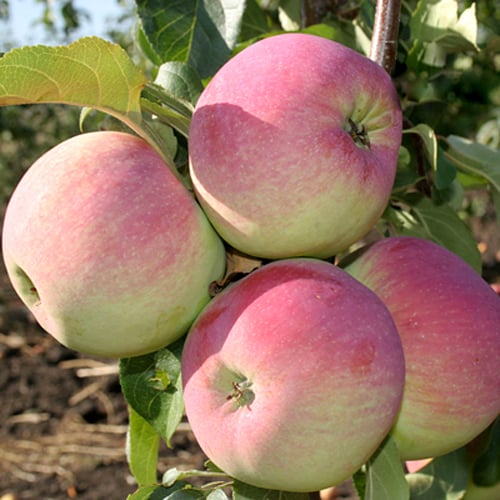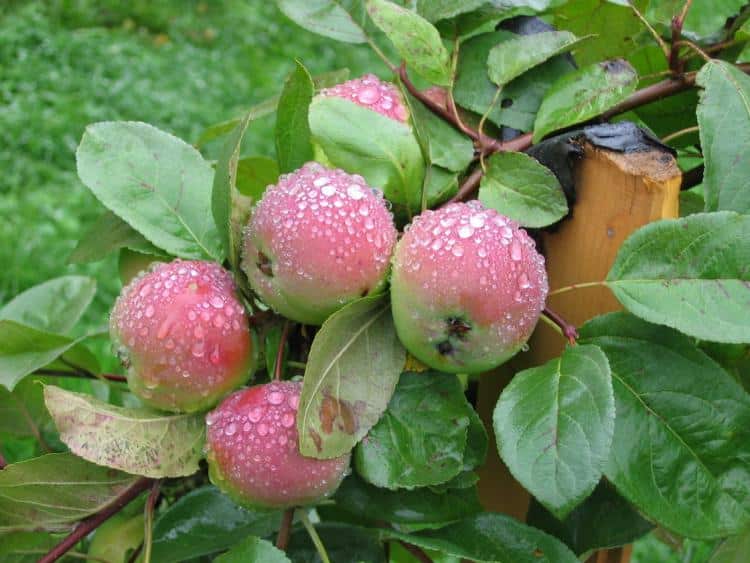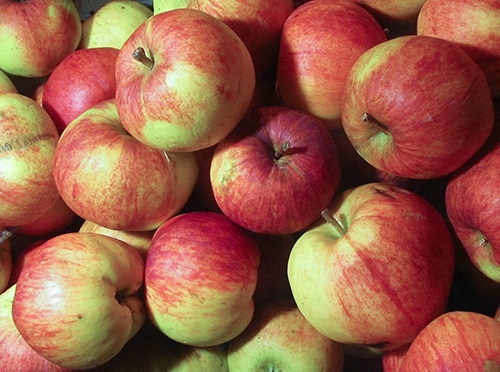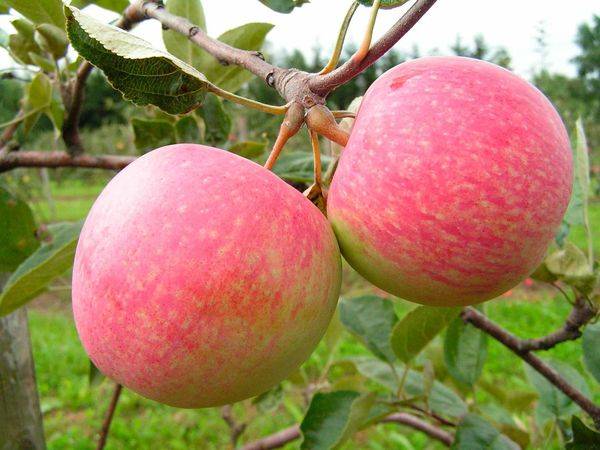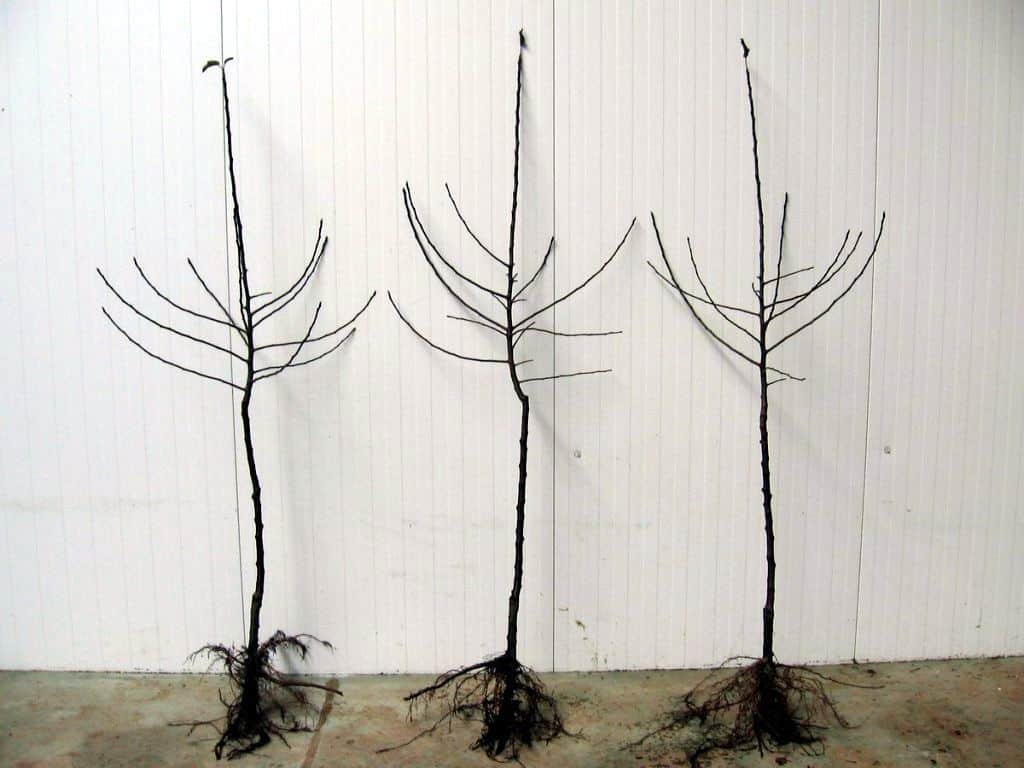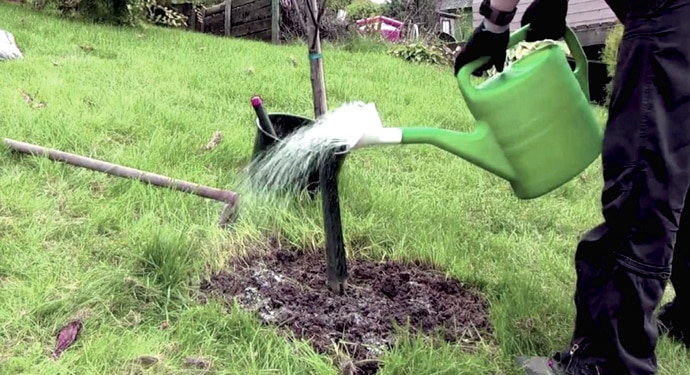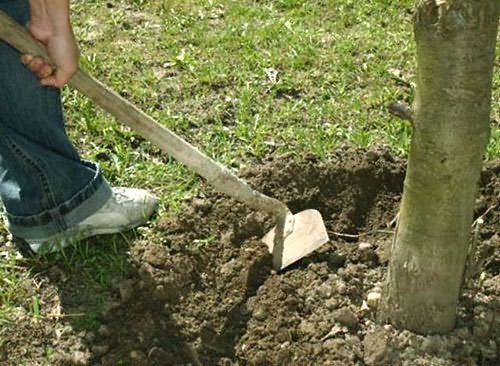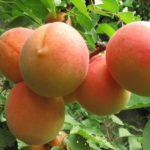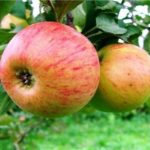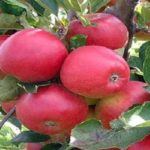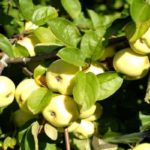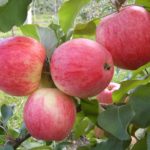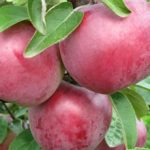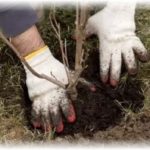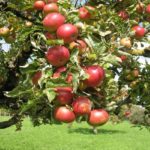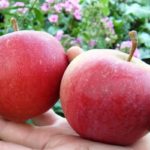Gardeners are constantly in search of the ideal fruit trees for their plot. Each of them wants a variety that is easy to care for and will produce regularly. If the selection of trees does not end, you should pay attention to the Freshness apple tree variety. The tree is a wonderful combination of the important characteristics of an apple tree for a gardener.
- History of apple tree breeding Freshness
- Advantages of the variety
- Characteristics of culture
- External data
- Tree height
- Crown diameter
- Root system
- Productivity features
- Beginning of fruiting
- Pollinator varieties
- Apple flowering and ripening period
- Harvest and use
- Taste and nutritional values of the product
- Duration of storage of fruits
- Technical parameters of the apple tree
- Susceptibility to diseases and pests
- Frost resistance
- Growing area
- Landing technique
- Preparing seedlings and soil
- Planting dates and technology
- How to care for planted trees
- Recommendations for caring for an adult apple tree
- Regularity of irrigation
- Top dressing
- Loosening the soil
- Formation of the correct crown
- Preventative treatments
- Preparing for winter
History of apple tree breeding Freshness
The variety belongs to late winter. Brought out by Russian breeders in the 70s. The tree was obtained by crossing Antonovka (red barrel) and Welsey. The first harvest was collected in the 80s.
Advantages of the variety
The tree has excellent immunity, which protects it from leaf and fruit scab. Gardeners note the high commercial quality of the fruits. The tree produces rich harvests of fragrant apples.
Characteristics of culture
When designing a garden plot, such nuances of the tree as external characteristics, height and diameter of the crown become important. A person is interested in a description of the root system and yield. Knowing these nuances will allow you to choose the optimal location on the site.
External data
The tree is medium in size compared to other representatives of apple varieties. The bark is brown in color and smooth to the touch. The branches are directed towards the sky. Oval leaves are dark green.
The green mass stands out in volume, and the plate in the center is concave and wrinkled. Small brown shoots. The white inflorescences have pink stripes.
Tree height
Subspecies of the Fresh apple tree grow quickly. They reach a height of 4-7 m. They are considered representatives of the medium-sized group.
Crown diameter
In most cases - 5-6 m, but the figure varies depending on the height of the tree. The crown has medium density and a rounded shape. The branches are compact and directed upward.
Root system
This part of the tree is the most developed. It is located 1 m deep into the soil. The roots are elastic and absorb nutrients and moisture well.
Productivity features
In order to get tasty apples at the end of the season, the tree must go through the fruiting stage. It all starts with pollination and ends with fruit collection. In recent years, the yield level of the variety has increased 3 times.
Beginning of fruiting
The apple tree produces its first harvest 5-9 years after planting.
Pollinator varieties
Freshness needs cross-pollination. Any variety is suitable for this.
Apple flowering and ripening period
The first flowers appear in June. Technical ripeness occurs at the end of September. Apples ripen from November to May.
Harvest and use
The fruits are picked from the tree in September. This is done carefully so as not to damage the stalk. For this purpose, use scissors or a knife.
Dried fruits are made from the fruits and are used to prepare low-alcohol drinks. Freshness is perfect for making canned jams, juices and compotes.
Taste and nutritional values of the product
The fine-grained pulp has a greenish tint. The structure is dense, but easily splits upon impact. Juicy and has a faint apple aroma. Apples taste sweet and sour. The fruit contains a lot of vitamins, pectin, saccharides, acids and other elements. Apples also contain P-active substances.
Duration of storage of fruits
Fresh is not a variety whose fruit can be eaten straight from the tree. To be suitable for consumption, they must rest for some time. They become mature by November. Thanks to their ability to be stored for a long time, the fruits remain juicy until May.
Technical parameters of the apple tree
Not only professionals, but also beginners in gardening are interested in these nuances.
Susceptibility to diseases and pests
The tree exhibits resistance to bacterial and fungal diseases. Rarely affected by scab.
Frost resistance
Freshness is an apple tree variety that is frost-resistant. The trees tolerate the cold season well in the middle zone. They are not afraid of sudden changes in temperature.
Growing area
The most suitable region for cultivation is central Russia. Adapted to development in temperate climates. It will tolerate drought more easily if regular watering is provided by humans.
Landing technique
The normal development of the tree depends on its correct implementation.
Preparing seedlings and soil
If possible, it is recommended to choose two-year-old seedlings with an open root system. They take root in the soil faster. Preparation of the planting hole is a prerequisite. The dimensions of the hole are 80 x 100 cm, the bottom of which is covered with drainage.
Planting dates and technology
The optimal time for planting is mid-spring (April). The boarding procedure is quick. A seedling is placed in the hole next to the peg. The soil is mixed with organic matter and the tree is covered. The root collar should be 5 cm from the surface.
How to care for planted trees
After compacting the top layer of soil, the planting is watered with plenty of water. To protect a young tree from pests, spray with Epin or Zircon.
Recommendations for caring for an adult apple tree
The procedures are easy to follow. A person is required to regularly monitor the appearance of the tree. Over time, the gardener will independently determine what procedure the apple tree needs.
Regularity of irrigation
Required to be performed in hot weather.
Top dressing
Fertilizers are applied 3 years after planting the seedling. The scheme is as follows:
- Autumn is organic. They are distributed over the tree trunk area and deepen as a result of loosening.
- Spring - mineral. Urea is added to open ground.
- The beginning of budding contains potassium and phosphorus.
The last procedure is repeated at the moment of fruit set.
Loosening the soil
It is considered mandatory and is carried out in spring, autumn and after applying fertilizers.
Formation of the correct crown
They do this 2 years after landing. As soon as the weather warms in the spring, pruning is recommended. The following are subject to removal:
- old branches;
- shoots that grow inside the crown;
- branches on which ovaries do not form.
It is also necessary to prune those that were damaged during the winter.
Preventative treatments
Root shoots must be removed. Every autumn the trunks are whitened with lime. Digging up tree trunk circles is considered a preventive measure.
Preparing for winter
During the first 5 years after planting, it is recommended to tie the trunks with spruce branches. This will protect the bark from rodents. With the first frosts, the tree trunk circles are mulched with compost or humus.

